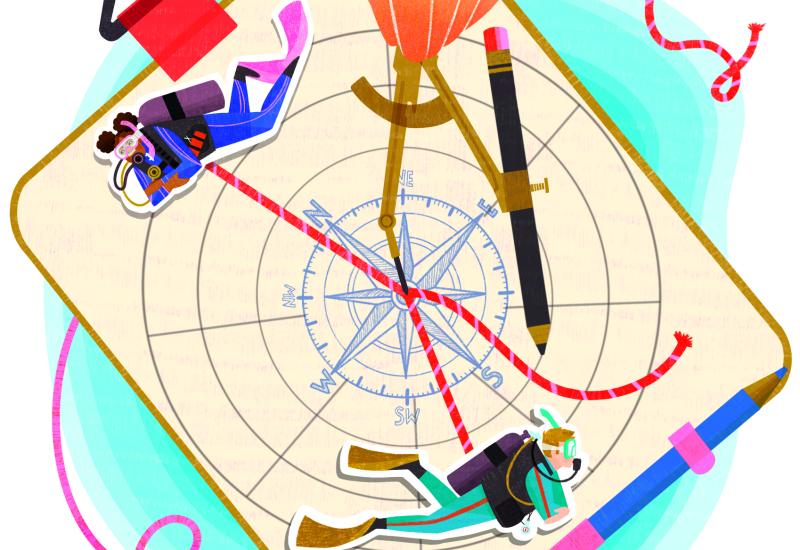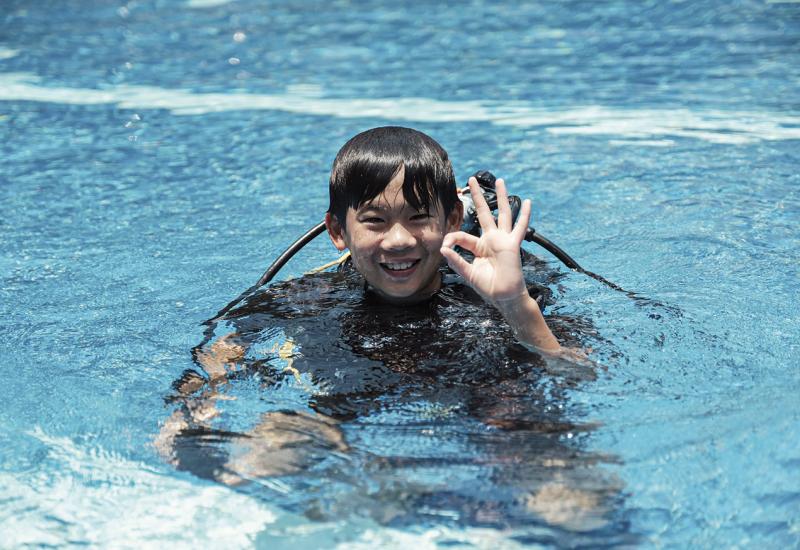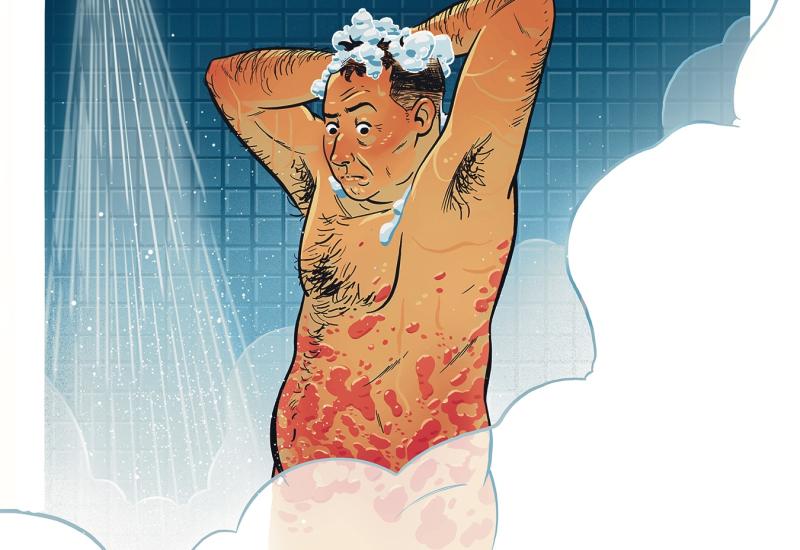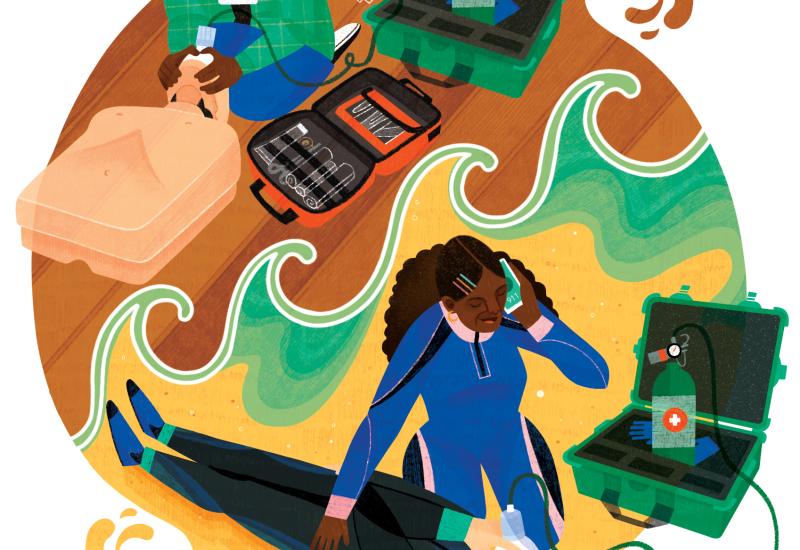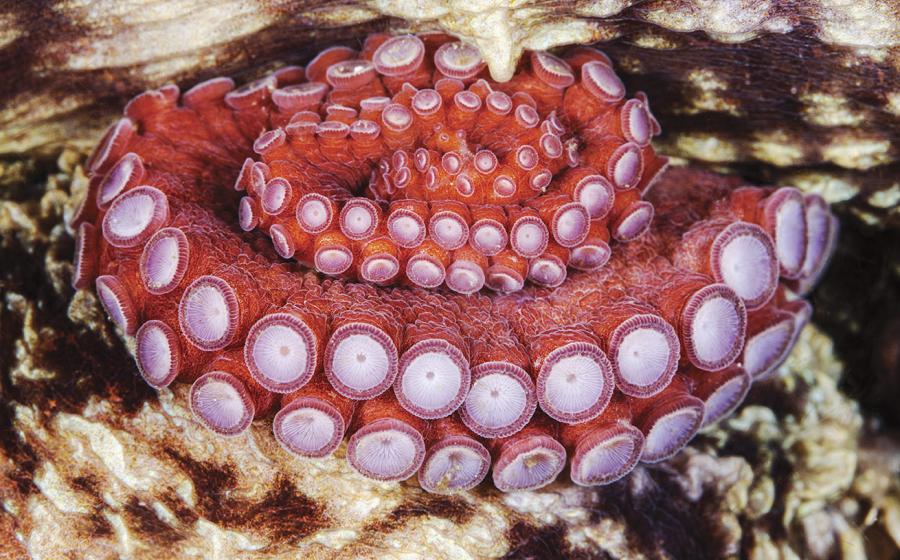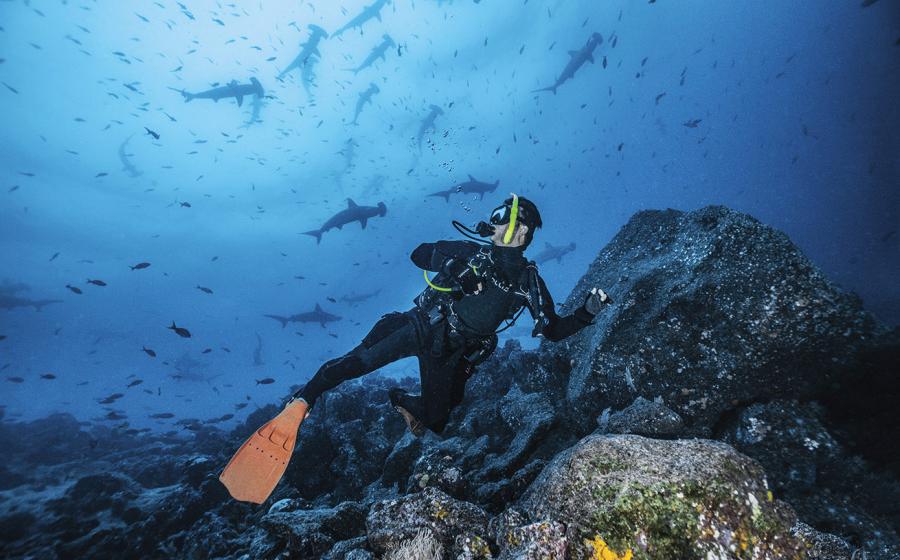The Healing Power of Scuba Diving
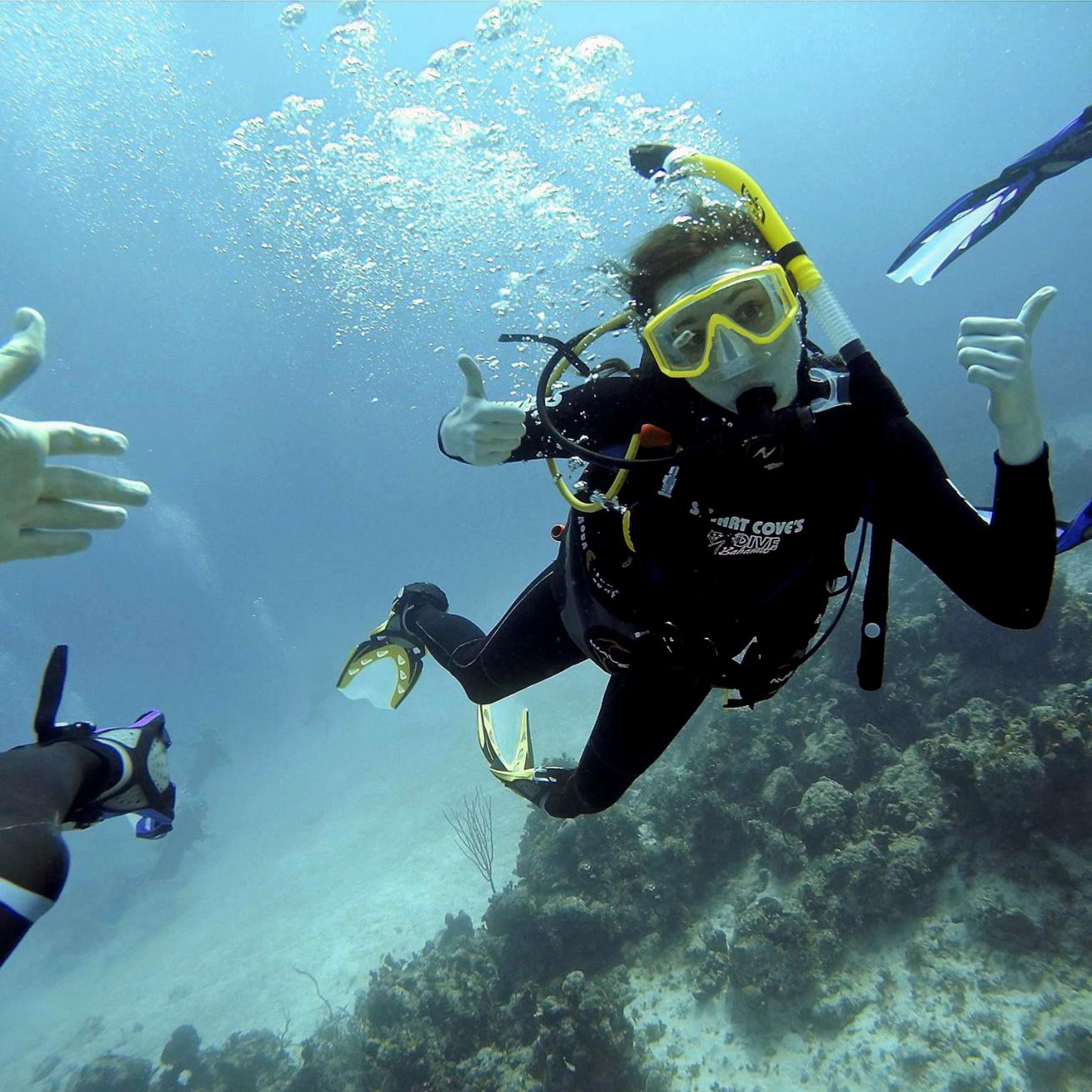
Kevin BlairThe author from one of her first open water dives.
The sky was clear. The air was humid and warm. The ocean was calm, so calm that the boat barely even rocked. I looked out at the horizon, where the ocean’s surface met the blue sky and took a giant stride off the back of the boat. I signaled to my open water dive instructor that I was OK, then spun around to marvel at the vast ocean surrounding me.
Journey to Recovery
A week earlier, I was a patient at an eating disorder treatment facility in a suburb of Chicago. For two months, I had been confined to buildings, barely allowed to walk around the hallways, let alone go outside. Now, here I was floating in the ocean in all my dive gear, preparing to descend below the surface for my very first open water dive.
The instructor helped the rest of the students into the water before strapping on his own gear and jumping in beside us. After a quick weight check, the instructor gave us the signal to begin our descent. I deflated the air from my BCD and slowly sank below the ocean’s surface. The visibility was nearly 80 feet on this reef in the Bahamas. Immediately, I was overwhelmed by the colorful explosion of fish and coral waiting for me on the ocean floor.
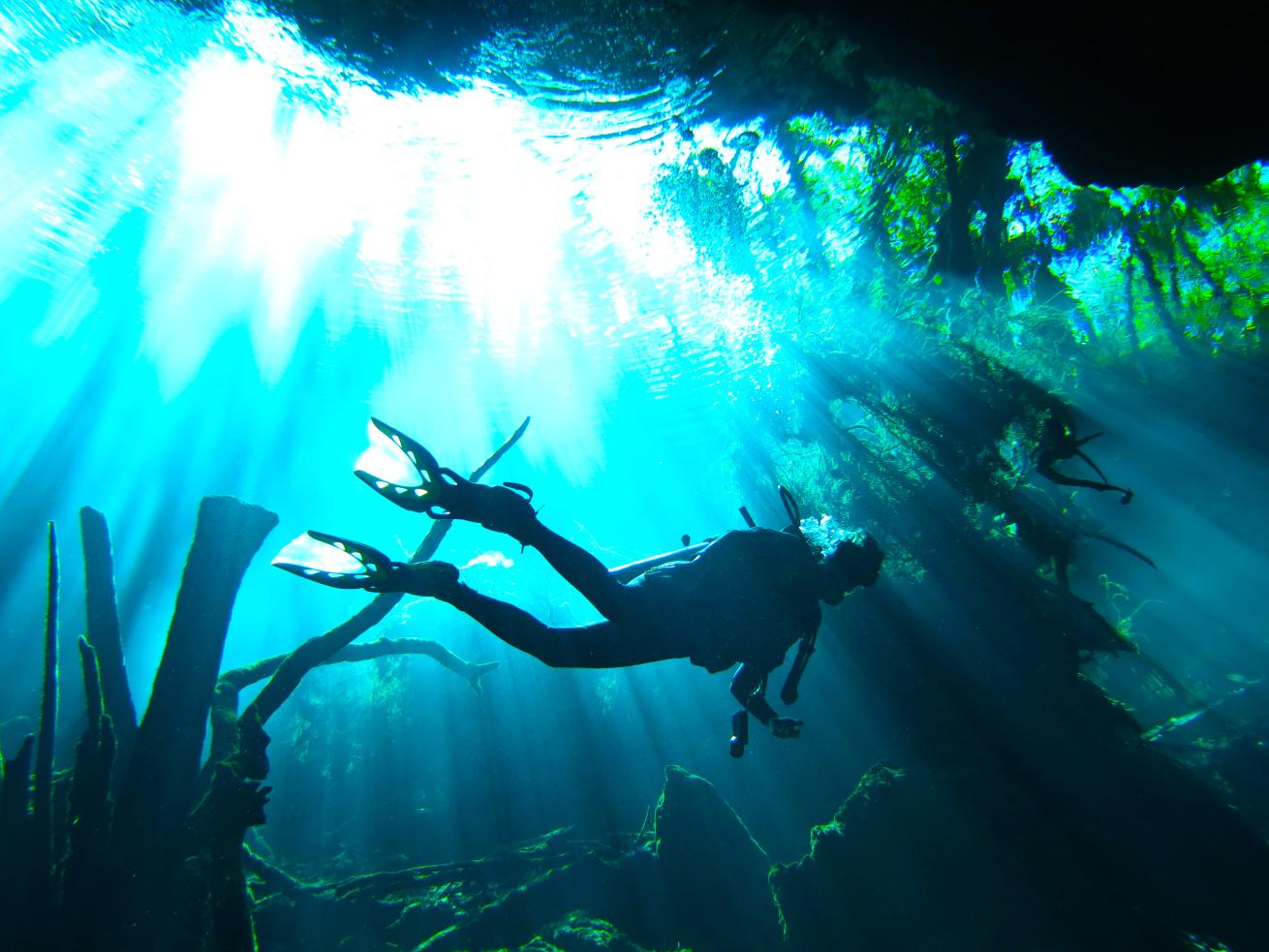
Kevin BlairDiving the Cenotes in Mexico is an otherworldly and unforgettable experience.
Since my first open water dive, I have gone on to complete dives all over the world. Cavern, deep, night, black-water, blue-water, drift and cold-water dives, just to name a few. I can’t get enough. Scuba diving has introduced me to a new world full of wonder and magic, but my connection with this sport goes even deeper. In addition to the joy I find in diving, it has become an essential piece in my eating disorder recovery. Diving has taught me how to face new challenges, bounce back from stressful experiences and practice flexibility and patience with factors outside of my control.
Building Resilience Through Diving
Several years into my eating disorder recovery, I decided to return to school to become a mental health counselor. While attending school, I began to learn about the importance of psychological resilience in mental health. Psychological resilience is a person’s ability to effectively cope and adapt to adverse experiences. It is the official term for when a person is able to “bounce back” after facing hardship or adversity. Once I learned about psychological resilience in my graduate program, I understood why I had become so connected with diving. The lessons I learned while scuba diving helped me become psychologically resilient, and, therefore, I no longer needed my eating disorder to cope with experiences or circumstances.
Related Reading: How Scuba Diving Helped Treat My Chronic Anxiety
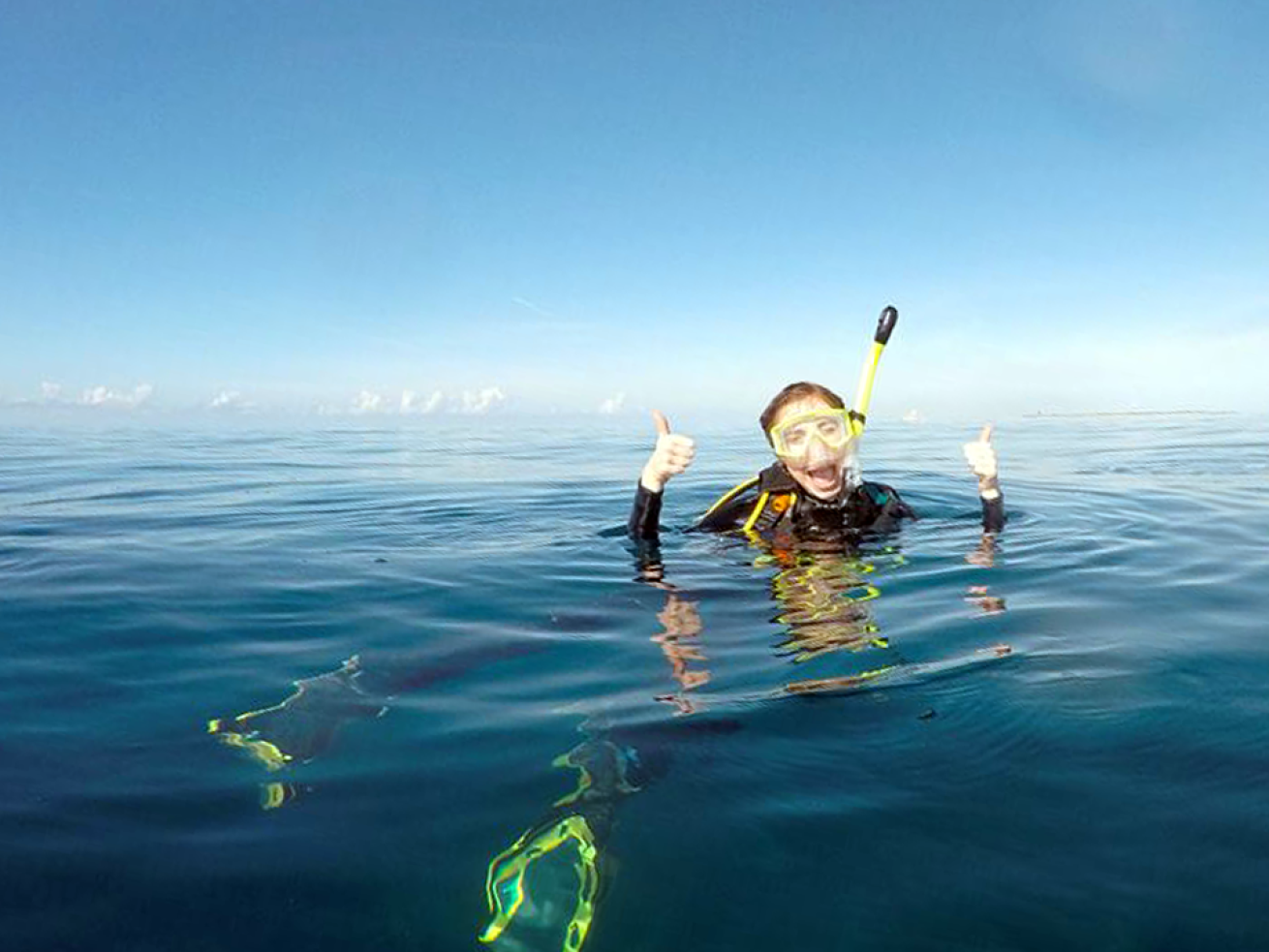
Kevin BlairPhoto from the author’s first open water dive after getting certified in the Bahamas.
There is a misconception surrounding resilience. Many people believe this is a trait that you are either born with or not. However, resilience is built by acquiring the proper tools to manage life experiences. My work as a mental health counselor largely centers around supporting my clients in building up their psychological resilience. Commonly when someone enters my therapy office — it doesn’t matter if they are struggling with an eating disorder, substance abuse, trauma or their life overall — they are there because they feel stuck. They are struggling with circumstances larger than what their current level of resiliency can manage.
Advocating for Scuba Therapy
As I work with clients on building psychological resilience, I commonly find my mind returning to my own relationship with scuba diving and how this sport was a key aspect of my recovery journey. I have used the evidence I’ve gathered over my years of diving as well as my graduate education to emphasize to my clients the importance of getting out of your comfort zone. My work encourages individuals to put themselves in unfamiliar spaces as a way to build confidence in their own ability to learn, adapt and overcome. From this approach, I have watched dozens of people begin to recover from their mental health struggles, and for that, I have scuba diving to thank. For me, it truly gives a new meaning to the term scuba therapy.

